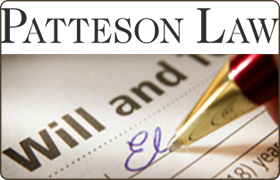Hawkins Estate Lawyer, Texas, page 2
Sponsored Law Firm
-
 x
x

Click For More Info:
-
Patteson Law
218 N Broadway Ave, #304, Tyler, TX 75702» view mapEstate Wisdom. Experience. Integrity.
As a strong, aggressive advocate for his clients, and a well-respected member of the legal community, you can rest assured that your case is in good hands.
800-769-7481
Andy Reynolds Tefteller
Wills, Family Law, Criminal, Personal Injury
Status: In Good Standing Licensed: 11 Years
Peggy S. Garmon
Commercial Real Estate, Lawsuit & Dispute, Wills, Business & Trade
Status: In Good Standing Licensed: 30 Years
Lawrence W. Anderson
Wills, Family Law, Elder Law, Administrative Law
Status: In Good Standing Licensed: 55 Years
 Richard Patteson Tyler, TX
Richard Patteson Tyler, TX AboutPatteson Law
AboutPatteson Law Practice AreasSpecializations
Practice AreasSpecializations
